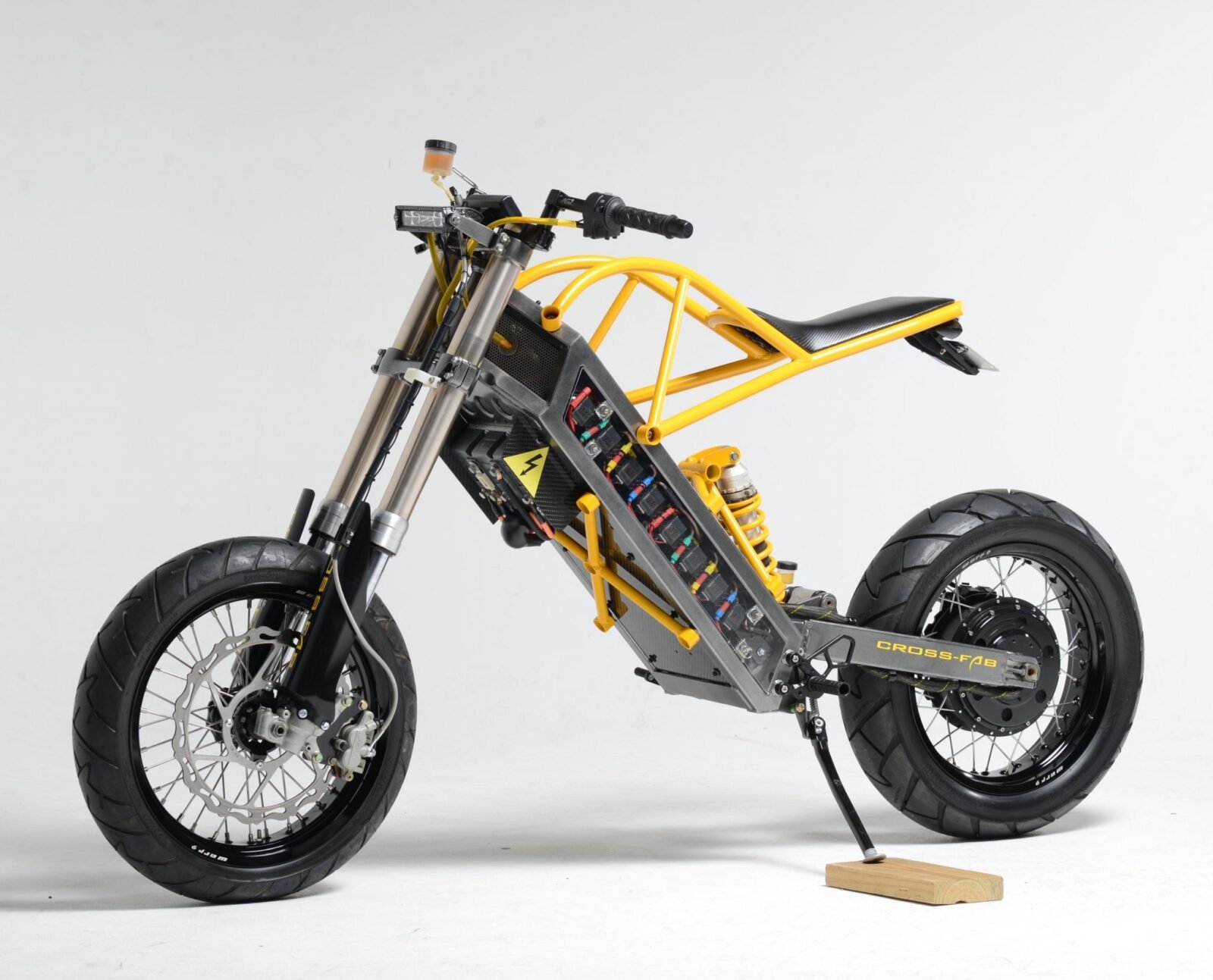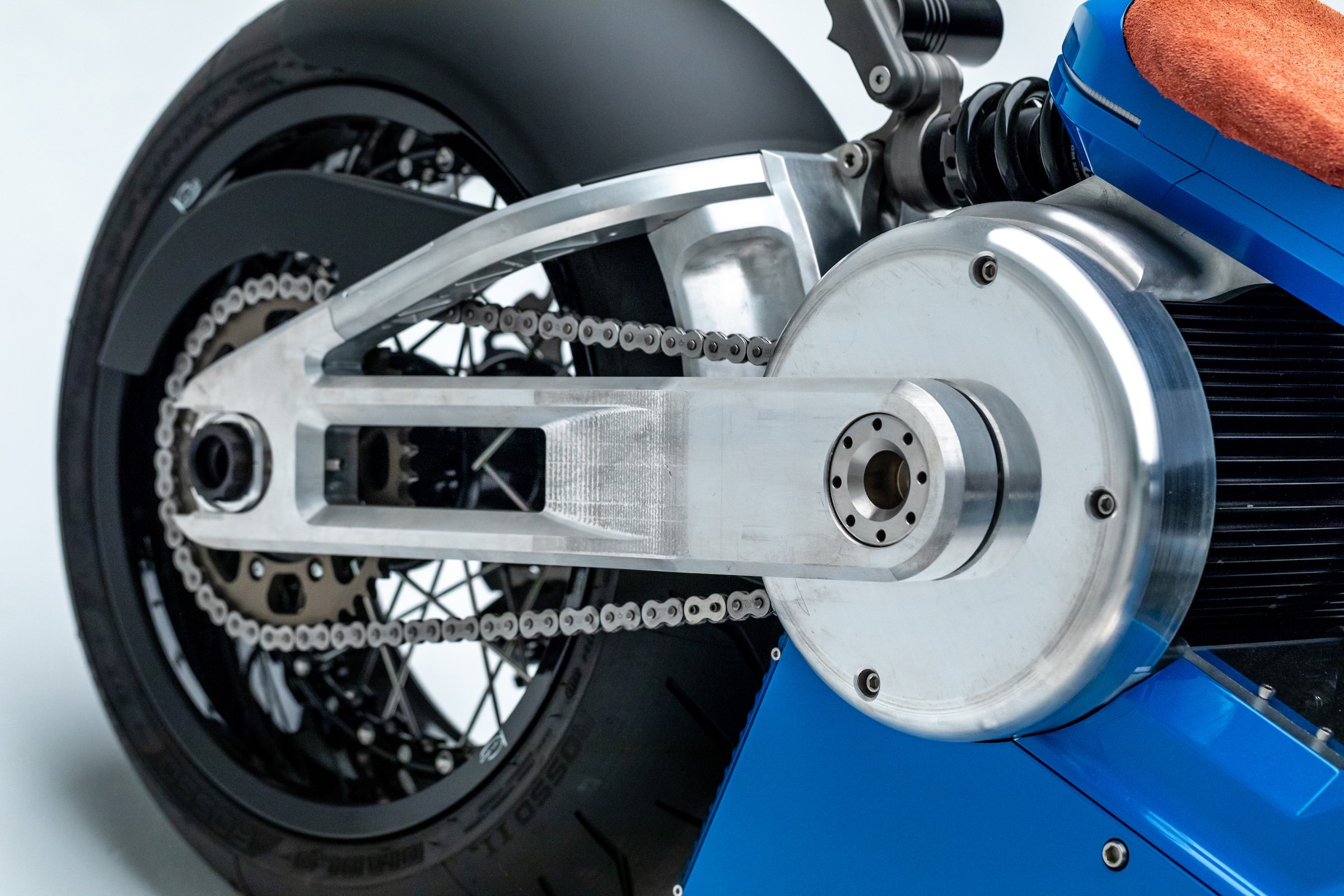Electric motor for a motorcycle – Electric motors for motorcycles are transforming the world of two-wheeled transportation, offering a compelling combination of performance, sustainability, and cost-effectiveness. This article delves into the intricate details of electric motors for motorcycles, exploring their design, operation, integration, and impact on the future of motorcycling.
From understanding the fundamental principles of electric motors to examining the latest advancements in battery technology, this comprehensive guide provides a thorough overview of this exciting and rapidly evolving field.
Motor Specifications

The performance and range of an electric motorcycle are heavily influenced by the specifications of its electric motor. These specifications include power output, torque, voltage, and efficiency.
The power output of an electric motor is measured in kilowatts (kW) and determines the maximum speed and acceleration of the motorcycle. Torque, measured in newton-meters (Nm), is the rotational force produced by the motor and affects the motorcycle’s ability to climb hills and carry loads.
The voltage of an electric motor is measured in volts (V) and determines the amount of electrical energy required to operate the motor. Efficiency, measured as a percentage, indicates how effectively the motor converts electrical energy into mechanical energy.
Obtain a comprehensive document about the application of electric bike rental newport beach that is effective.
Table of Electric Motor Specifications
The following table compares the key specifications of different electric motors for motorcycles:
| Motor | Power Output (kW) | Torque (Nm) | Voltage (V) | Efficiency (%) |
|---|---|---|---|---|
| Motor A | 10 | 150 | 72 | 90 |
| Motor B | 15 | 200 | 96 | 92 |
| Motor C | 20 | 250 | 120 | 94 |
Battery Technology
Batteries are the heart of electric motorcycles, providing the electrical energy to power the motor and other electrical components. Different battery technologies offer varying performance characteristics and limitations.
Lithium-ion Batteries
Lithium-ion batteries are the most common type used in electric motorcycles due to their high energy density, lightweight, and long lifespan. They provide a good balance of performance and affordability.
Lead-acid Batteries, Electric motor for a motorcycle
Lead-acid batteries are less expensive than lithium-ion batteries but have a lower energy density and shorter lifespan. They are still used in some electric motorcycles, particularly in budget-friendly models.
Discover more by delving into bike rentals in dewey beach delaware further.
Solid-state Batteries
Solid-state batteries are a newer technology that offers potential advantages such as higher energy density, faster charging, and improved safety. However, they are still in the early stages of development and are not yet widely available.
Ending Remarks

In conclusion, electric motors are poised to revolutionize the motorcycle industry, offering a sustainable, efficient, and exhilarating alternative to traditional gasoline-powered vehicles. As technology continues to advance, we can expect even more groundbreaking developments in motor design, battery performance, and charging infrastructure, making electric motorcycles an increasingly attractive choice for riders worldwide.
Answers to Common Questions: Electric Motor For A Motorcycle
What are the key advantages of electric motors for motorcycles?
Electric motors offer several advantages over gasoline engines, including higher efficiency, lower operating costs, reduced emissions, and smoother and quieter operation.
How does the range of an electric motorcycle compare to a gasoline-powered motorcycle?
The range of an electric motorcycle is typically shorter than a gasoline-powered motorcycle, but it varies depending on factors such as motor efficiency, battery capacity, and riding conditions.
What are the different types of electric motors used in motorcycles?
There are several types of electric motors used in motorcycles, including DC motors, AC motors, and brushless DC motors. Each type has its own advantages and disadvantages.
